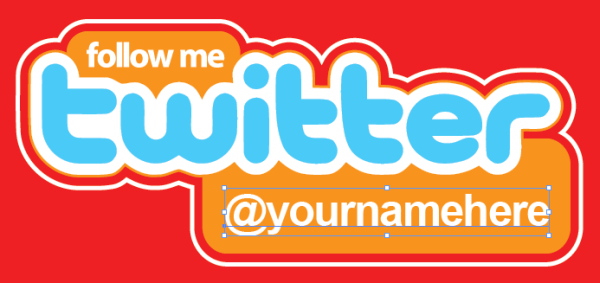This is a guest post by Kwame Boame. Follow him on Twitter.
If you look around the social web a lot like me, you will agree that most social media campaigns suck. Some people think social media is just fun. Some however see it as an opportunity. What do you think about using social media for business? I hope you are still not confused by the whole concept.
If your business is already on the social web, you will need something to help you improve on your campaigns. You will need an audit.
When you audit your social presence, you will be able to make better business decisions when it comes to social media. You will be able to gather enough data from your own campaigns to help you improve your online marketing.
We are going to go through a series of questions that will help you in your audit. The audit has been divided into parts so that it will be easy for you to take notes.

Grab a pen and paper or open your word editor and let’s begin.
Branding
- Are my profiles complete? Make sure all your social media profiles are complete with the most relevant information. Fill out your bio by saying something about what people do with your brand. It’s all about your target audience; not just about you.
- Do I have exclusive profiles for my brand? If you have your brand name as your Twitter handle and a portrait photo of you on your profile, you are getting it all wrong. People want to be able to identify your brand. They don’t want to get to know the CEO. You can introduce yourself another way, another day. Get rid of your photo and put your logo there.
- Do I have custom profile landing pages? Custom landing pages can increase your social media efforts. You may want to create a custom Twitter background, custom Facebook fan page landing tab (with FBML) and custom YouTube channel backgrounds.
- Are my profiles well branded? Don’t give your brand another image by mixing things up. I have seen people mix up colors on their YouTube Channels, Twitter profiles, and Facebook fan pages. For example, they use a green background on Twitter, black background on their YouTube channels and maybe red on their Facebook fan page landing tabs. They completely ignore their brand colors of green and white (or blue or white maybe). A situation like this confuses people and makes it difficult to identify your brand. If your colors are green and white, use those colors all over your social profiles.
 (And that was the UK. In 2008.)
(And that was the UK. In 2008.)
Integration Audit
- Am I integrating my social media profiles? Can you please share your Twitter feeds on LinkedIn? (Just not like this.) How about telling your Twitter followers what is up on your Facebook fan page? When you integrate your profiles, you help build the relationships you have already started on each social site. It helps build loyalty, generate conversations, and it also gets you more followers if you do it right.
- Do I have social media integration on my business blog? If you have a business blog, you have to integrate your social media profiles on it. Ask your blog’s readers to follow you on Twitter, subscribe to your YouTube channel, add you on LinkedIn, or “Like” you on Facebook. There are plugins that can help you do that. Also, you should consider sharing your Twitter feeds and Facebook updates on your blog’s sidebar.
- Am I integrating offline marketing with my social profiles? You can promote your social media profiles by integrating offline media. You could have a T-shirt for Twitter, one for Facebook and one for YouTube. Your Twitter T-shirt could have your handle printed on it. For example, I’ll put “I tweet. Follow me @Sociatic” on my Twitter shirt. Make your handle big and bold so people can see it. Think of places you could wear your T-shirts to. You could also add your social media profile URLs on your business cards, in your catalogues, on your flyers, etc.
 (Get this shirt style here).
(Get this shirt style here).
- Am I integrating on other networks? When you write guest posts, do you include that people should check you out on the Twitter or Facebook in your byline? Do you do any guest posting at all? Consider integrating your social profiles on blogs. Another way you can integrate is using your social profile URLs as your website when leaving comments.
Content Audit
- What types of updates do I share? Do you share other updates relevant to your followers? Do your updates request for conversations? I have seen people share their family holiday plan on their business Twitter profile. That’s not the way to go. Your updates can make or break your business. Be careful what you share.
- How many times do I update in a day? It is not necessary to update 50 times a day. When you have nothing to say, don’t update. When you do, they are not genuine because you had to actually think about something to write when you had nothing to say. When you have something to say though, you can think about how to put deliver it; maybe you will want to add some emotional angles.
- Do I hard sell with my updates? Do you always tell people to “buy now”, “buy before midnight”, “For the first 300 people”, etc? What you should do is to be insightful, insightful, insightful… and then “New price reduction on our favorite product, “X”. Visit http://shorturl.com to take advantage.”
- What feedback do I get from my followers concerning my updates? People are definitely saying something about what your business is saying or doing on the web. What are they saying about it? What do they complain about? What do they praise you for? I hope you still have that pen and paper in your hand. 😉
- Do I have bait? Do you have something you can give out for free? Give it out to the people who take the action you want them to take. Examples of baits are: graphics, eBooks, whitepapers, scripts, website themes, coupon codes, etc.
Measurement Audit
- What part of my social activities do I measure? If you haven’t already, get measurement tools to measure all your social activities. The data will let you know where you are effective and where you suck. Some tools you can use are Social Mention, Trackur, and PostRank. You can also get Google Analytics installed on your Facebook Fan page. Facebook Analytics for domains was recently announced as well.
- Do I have alerts set up to notify me of brand mentions? If you don’t have alerts set up to notify you of conversations involving your brand, do it now. You can use Google Alerts or Social Mention’s alert feature. I prefer Social Mention because they are more thorough than Google.
- What social media site gives me the most traffic? According to your web analytics, what social media site gets you more traffic? Why do you think you keep getting traffic from that site?
- What social media site gives me the most leads? What social media site gives you the most leads? You should track this too. Don’t assume the site that brings you more traffic gives you the most leads. This is wrong. Sometimes the site that gives you less traffic gives you the most leads.
Overall Campaign
- How much time do I put into social media? You need to know the average time you put into social media every week or every month. This is going to help you realize how much time you are utilizing or wasting on social media depending on your results.
- What results am I getting from it? Are you reaping great benefits from your social efforts? Are you getting ROI on your investments on the social web? Don’t give up if the results are not good. Social Media marketing is about building relationships and conversations. Building relationships takes time so you have to give it enough time before you will see good ROI.
- What is working for me? What activities bring you more positive results? What works for you in terms of generating leads? What social media site works for you best? What types of bait brings you more leads? Analyze every part of your social media efforts and write down what’s working.
- What is not working for me? Now list all the things that are not working for you in your campaign. What bait is not working? What social media sites are not working? Write all of them down. No, don’t quit them yet. Make some changes to them and measure it another day. If it still doesn’t work, quit it.
- How effective is my overall campaign? From your results, determine whether your campaign has been successful. After you decide that, decide what’s next for you and your campaign.
- Should I get help? Did you get great results all by yourself? If you did, I bet you will love to do it again. If your campaign wasn’t successful, would you outsource it or rather learn more about social media on your own so that you can do it yourself? Put some thought into it and decide.
Conclusion

Did you finish up all the ink in your pen? Yeah, that’s good. It means you got a lot of ideas from the audit. It will be best to re-plan your social media campaigns. Divide your plans into days. You can make a 30 day plan or 45 day plan to improve your social media campaigns. Your plan should be based on your audit; both the good sides and bad sides.
What other questions will you ask yourself in a social media audit?
Kwame Boame is a marketing consultant who blogs about brand communication on his blog, Sociatic.
First photo by Shutterstock. All other photos are linked to their respective pages on Flickr.






Thanks Kwame (and Tamar). This checklist will be put to good use at our place. Esp. appreciate the measurement audit–so needed right now. I think it’s so important to ask that ?–what isn’t working for me? Too often, all I think about doing is adding, not culling.
Excellent checklist Kwame. So often big brands miss the mark by a mile. I hope some of them take these 20 Q’s and really look over their current social tactics.
Thanks for the appreciation and comment Zak.
I think some big brands miss the mark by 2 miles ;).
Kwame.
It’s our pleasure Chris.
It’s only when you measure that you find the treasure. When you find the treasures, you will be able to take calculated steps.
Thanks for your appreciation.
Kwame.
Kwame-I have a question about content auditing: Do you think there’s a place for “personal” updates if shared correctly. Somebody I follow that does a great job of this is Amber Naslund at Radian 6. Is it the difference between organizational branding and personal branding?
Chris, I just followed Amber on Twitter. I see what you mean. What she is doing is totally not a social media ‘sin’ because she is not sharing personal updates on Radian6’s handle. Mixing business on your personal Twitter profile is cool but mixing personal updates on your business profile is a ‘sin’.
I have seen some small businesses share personal updates like, “my daughter is 3 yrs old today” and “@XYZ, give me a call and let’s go have some beer tonight” on their business profile. This is wrong.
Hope I answered your question.
Kwame.
Great post! I’ll be referring to it over and over again to make sure I’m making progress.
Thanks for the appreciation.
Kwame.
Great post, and loads of fantastic ideas to reference. I especially like your point about integrating social media with your offline activities. For some smaller businesses, social media can serve as the back up, the additional hand holding, or security blanket to potential clients when the business is either closed or busy. Having a good social media plan that actually connects is the key to long term success.
Good point Gareth but I don’t see what you mean by “when the business is closed”. Please throw more light on it for us.
Kwame.
This was a fantastic list you found! Thanks for sharing
Any brand using social media needs to follow some type of guidelines to audit themselves. BUT, it actually should probably be done by an outside eye just to make sure. I’m sure you can barter a deal with a business partner! 🙂
Love the idea of wearing a t-shirt or promoting your online social media presence in the offline world. Great tips here. Thanks for sharing.
I agree! I’m going to have to start making me a bunch of custom shirts!
And thank you for our appreciation.
Kwame.
Thanks Kelsi. Actually, I did a marketing audit for a freelance web development business last week and we are now working together on fixing the mistakes. I will consider turning this into a free online quiz where people will get their campaigns graded. Currently, I need more ideas and a strategic plan ;).
Kwame.
That sounds awesome!
Well I am a big idea type of person. Let me know if you would like some help from me.
Sounds good Kelsi. I’ll keep in touch.
Thanks a lot Kwame, really great stuff for social media marketing, sometime we all are working on social sites but without any planed.”Integration Audit” & “Measurement Audit” these two section are very useful to all of us.
I want to know something about FBML (Facebook).
Thanks a lot .
What do you want to know about FBML?! I have delt with it a good bit
Thanks Kwame (and Tamar). This post is terrific!!! in a few months, I’m going to work in redrawing myself and my whole strategy due to my upcoming brand persona and after an agency launching… be sure some of the considerations of the philosophycal stage will be supported in this enlightening questions.
Thanks for sharing. Love your stuff!
Thanks Kwame and Tamar. This post is terrific!!! in a few months, I’m going to work in redrawing myself and my whole strategy due to my upcoming brand persona and after an agency launching… be sure some of the considerations of the philosophycal stage will be supported in this enlightening questions.
Thanks for sharing. Love your stuff!
Israel, I’m sure your strategy will be excellent if you work with this article. All the best.
Kwame.
I’ll keep you updated : ) Thanks!
Regards,
This is a nice check list. I will try to use this and see if it works for myself. Thanks for sharing this post. If you get the chance, feel free to visit my site.
Kwame,
Very extensive article. One thing I don’t agree with is “If you have your brand name as your Twitter handle and a portrait photo of you on your profile, you are getting it all wrong”. I find this very difficult to accept, as many successful marketers use their portrait. People’s eyes gravitate towards a face. Yes brand awareness is important…but your dealing with a social setting. A portrait on the header of your website would be worst, but a brand image (artwork) is much more effective there.
Anwar, I think you misunderstood Kwame’s point. If you are AT&T and your avatar was the face of your CEO, you’re doing it wrong. People are following AT&T because they care about AT&T, not about some no-name behind the company. (Yes, I did just say that. Most people don’t care who AT&T’s CEO is.) If you are building your *personal* brand, by all means, use your avatar (and face!).
And if you’re Verizon_Gary, then yes, people are following you because they care about Gary from Verizon. The key phrase here is “brand name” (and only! brand name).
Ok, I guess I have to think more about brand name vs personal brand. Thanks for the followup
Exactly my point. Thanks for following up for me Tamar. I was in slumberland when Anwar left the comment :).
Kwame.
Hey Kwame – Great questions! Some (OK, most) of them I have not been asking myself, nor have I been checking out PostRank, which I should. 🙂
Glad you found it useful Tia. PostRank is becoming one of my favorite tools.
Have a nice one.
Kwame.
These are great questions to help navigate the social media wilderness. I see a lot of irrelevant content out there and the difficulty in really understanding one’s target market. I am recommending these questions to guide everyone who is creating a social media strategy.
Great checklist. Thanks for sharing.
Editor’s note: Use your real name or do not comment here at all.
Thank you for sharing.. Great questions!
You’re welcome Earl. Thanks for commenting :D.
Kwame.
Sometimes social networking and PPC ad campaigns just aren’t enough, no?
SEM is extremely time consuming. Got me thinking…
Is behavioral targeting really that bad? Most retargeting companies utilize ANONYMOUS pixeling. Is it really so bad to be sent advertisements that might cater to your needs?
You get traffic thats targeted too.
Hm.
Editor’s note: Thanks for the comment but I removed the excess self-promotional links pointing to your owneriq.com site. Normally I wouldn’t approve this kind of comment since it’s nothing but spam — I’m not even sure how it’s associated to the article — but I’m using your comment to set an example. Note that I approved your comment 3 days after you wrote it since I was sitting on this. Please don’t spam. It’s not nice.
thanks tamar, it’s a good guide.
cheers
nantha.k
Perfect post. This is something that can be used as a quick checklist for social media effectiveness. Thanks, Kwame.
Thanks for all the tips. The one thing I disagree with is the advice on using a Logo as your avatar on Twitter. I actually see far more interaction when we use a human photo of the writer as the avatar. You can easily brand your background, but Twitter users prefer to relate to human beings. People like to know who they are talking to. Look at http://twitter.com/comcastcares and Ford’s Scott Monty. http://twitter.com/ScottMonty as examples.
Hi Deborah, I’m going to email you directly but this was actually mentioned in the comments to which I personally replied. Please see this to understand what he was trying to convey. 🙂
Well, I’m still not completely convinced. Here is another example. Our local Best Buy. The tweeting is done by John Knoeppel. He’s done a fabulous job of networking in the community. If he was just tweeting as Best Buy in Eatontown, I would pay no attention to his tweets. He’s using Twitter to network within the community and put a human face behind Best Buy. And, it works. http://twitter.com/EatontownBB
I think that’s a different scenario though. You’re talking about a small localized community where the owner of that account might actually one day meet his followers face to face. Of course, then, he should represent himself. Plus, he’s not really a “brand name.”
On the other hand, using a human face for something as big as @Comcast or @Target would seem a little strange. People know the brand. They don’t know the people behind the brand. Not everyone cares either.
John is no different from Frank Eliason who made @comcastcares famous. But that’s a smaller account intended for personal outreach. The big brand accounts should use the logos that their millions of followers should come to expect to see when they follow the account.
Hi Deborah and Tamar,
Deborah, Tamar’s last point explains what I meant.
Apart from the ‘work-related’ individual employee accounts, these companies have their main accounts. They are doing things right. Most small businesses don’t do this. That’s why I said “You can introduce yourself another way, another day.” and the other way is by having an account tied to your business/job/employer.
If you have a small business, you can have department heads running Twitter accounts tied to their departments. For example, customer service will have an account and sales will have an account. This is the way of most big brands on Twitter.
Merry Christmas!
This is spot on. The list is helpful
A great list and a good starting point for anyone looking to get serious about their social media no matter what the size of their business.
This is a great starting point and is a comprehensive way to really get to grips with thinking about what you have and need.
Of course, you can see from this that there is a lot of work to be done and for many this time creates yet another “thing” to do in the day and it might also present a vertical learning curve.
I often run into this with our clients and a free audit from a social media agency can certainly help, outsourcing your social media needs to a professional team can be very cost effective and it then becomes a silent winner for your business. I am not a spammer so wont be adding links into this review but please do feel free to contact me for any help with your business social media, a free audit (as the name implies) costs nothing at all.
Nice guide, been looking for this kind of information specially auditing a website.. Thanks
Thanks for sharing this post. It is great to have a checklist on best practices for SM, especially for starters. It would be interesting if you could comment on type of indicators you will use for evaluation, KIP are process indicators, what about impact evaluation?
Thanks